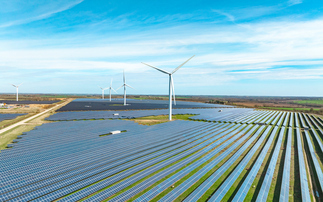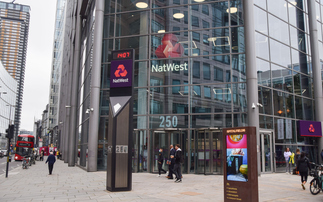BNP Paribas' Simon Gates reveals how UK water companies and investors are working to tackle a water challenge that is bigger than many people realise
Did you know East Anglia gets less rainfall than South Sudan? This inevitably makes it more challenging for the UK than you might think to apply SDG6 - Clean Water and Sanitation. How do you "protect and restore water-related ecosystems (as required under target SDG 6.6)" when there is pressure on accessing as much water as possible? Can you "substantially increase water-use efficiency" (as demanded by SDG 6.4) when the political focus is on minimising customer bills?
But the UK Water Industry is working on it - and there is a growing trend of companies actively engaging with investors to demonstrate their Environmental, Social and Governance (ESG) agenda by attaching it to their debt financing. This is mainly through Green/Sustainable bonds, which tie use of proceeds to green/sustainable projects and Sustainability Linked Loans, in which the interest rate a borrower pays is tied to sustainability KPIs.
Anglian Water was the first UK utility to issue green bond, and it has now since issued a second Green Bond, which finance projects that:
- Help mitigate climate change impacts by GHG emissions reduction through the use of energy-efficient facilities and conservation of water resources,
- Help to adapt to long term impacts of climate change such as flood risks
- The eligible green project categories identified within Anglian Water's Green Bond Framework are: Sustainable water management projects with a reduced climate footprint/ Sustainable water recycling projects with a reduced climate footprint
Anglian's green approach is classical, and has provided a clear benchmark in creating an environmental framework in the water sector.
Although Thames Water also has a green bond framework (and issued a Green US Private Placement in March 2018), it has supplemented this approach with a £1.65bn Sustainability Linked Loan where the KPI is tied directly to its Infrastructure GRESB score (Global Real Estate Sustainability Benchmark). The inclusion of a third party benchmark creates the potential for a broader peer comparison, but also ties in strongly to Thames's operating environment in an increasingly crowded London and Thames Valley.
Any benefits from the positive incentive in the loan pricing are donated to Thames' charitable fund, which supports 21 charities and community groups across London and the Thames Valley, relating to water and the environment. This set a new precedent as it was the first UK company to make this commitment.
Another first for the industry was Yorkshire Water's Sustainability Bond issued in April - a sustainability bond is broader than a Green Bond, adding social categories which allow the company to include areas such as support for vulnerable customers and social tariffs. This aligns well with SDG 6.1 and 6.2 targets - "achieve universal and equitable access to safe and affordable drinking water for all" and "achieve access to adequate and equitable sanitation and hygiene for all… paying special attention to the needs of… those in vulnerable situations".
Cynics may argue that many of these areas are business as usual for a UK Water Company - this is partly true, as efficiency projects and affordability are clearly in the scope of regulation. However, the broader ESG frameworks being adopted by these businesses demonstrate a more holistic approach to their strategy than merely following the demands of the regulatory regime. This needs to be lauded as a sign of an industry getting its act together on ESG. It is therefore quite feasible that this sector could be running entirely with sustainable finance in the near future.
If we move from the water producers into the water consumers, there is a growing awareness of water usage and the need for more efficiency in their use of water - this will likely become more acute as the recommendations from the Task Force on Climate-related Financial Disclosures require them to consider the implications of water stress on their business. Hopefully this will be visible in future financings for water-hungry industries too, and the sustainable finance revolution could become the new normal in accelerating water sustainability strategies.
Simon Gates, UK Head of Corporate Coverage and Transaction Banking at BNP Paribas







